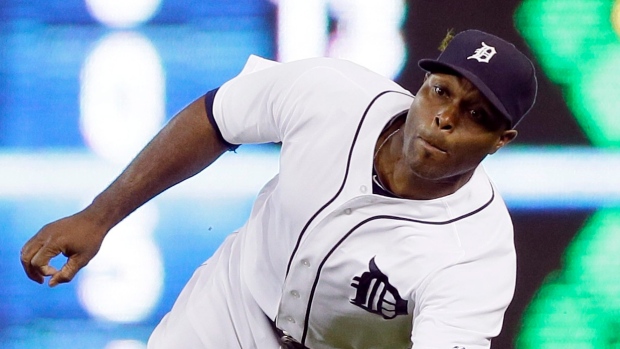Dec 3, 2014
Twins announce $10.5M, one-year deal for Hunter
The Minnesota Twins have announced the signing of outfielder Torii Hunter to a $10.5 million, one-year contract. The Twins agreed to terms with Hunter on Tuesday night and announced the deal on Wednesday after Hunter passed a physical.
The Canadian Press

MINNEAPOLIS - When Torii Hunter first came up to the major leagues in 1997, Paul Molitor was bringing a Hall of Fame playing career to a close with his hometown Minnesota Twins.
Molitor could still swing the bat, and the impression he made on a talented group of youngsters, including Hunter, helped lay the foundation for the long-struggling team's renaissance.
Almost two decades later, Hunter is returning to Minnesota, his home away from home, to play for Molitor and return the favour.
"This is where I needed to be," Hunter said Wednesday after signing a $10.5 million, one-year contract with the Twins. "This is home for me."
Hunter spent the first 11 years of his career with the Twins. He was a first-round draft pick as an 18-year-old in 1993 and looked up to Kirby Puckett and Molitor, among others, as he made his way up through the system.
He watched how Molitor, who hit .341 in 161 games as a 39-year-old designated hitter with the Twins in 1996, went about his business, studying opposing pitchers for weaknesses and pouncing on blunders in the outfield to take an extra base.
Now Hunter is 39, still swinging the bat pretty well in the closing stages of his career. And the Twins are flush with prospects who need a mentor.
"It's crazy how things come full circle," Hunter said. "Just watching Molitor at the end of his career and I was a young player and he was imparting (wisdom) to me and showing me different things. He's the manager now and I'm almost at the end of my career, still producing though. Now I'm coming back and trying to impart to some of these younger guys and give back to them and make them better."
The Twins have lost at least 92 games in each of the last four seasons and a young clubhouse has at times appeared overwhelmed and a little lost without a strong veteran voice. The organization hopes prospects such as Byron Buxton, Miguel Sano, Alex Meyer and Eddie Rosario will be ready to support quiet veteran Joe Mauer. There also are up-and-comers Kennys Vargas, Oswaldo Arcia and Danny Santana on the roster who may push the Twins back into relevance.
General manager Terry Ryan was looking on the free-agent market for a right-handed hitter with some power, and Hunter hit 17 homers and drove in 83 runs for the Detroit Tigers last year. That Hunter also happens to be the kind of player who takes pride in being a vocal leader and holding other players accountable only added to the attraction.
"We've got a young club here. We've got young position players," Ryan said. "We brought Torii here not only to help them out, but more importantly, we still believe Torii can be a productive player in his own right."
Hunter is a five-time All-Star and a nine-time Gold Glove winner who has hit at least 16 homers in 13 of his last 14 seasons.
He had other suitors, and perhaps some were much closer to contending for the championship that has eluded Hunter to this point in his career.
Hunter said he couldn't pass up the chance to return to the place it all began. He's looking to help the Twins regain the level of the team that won four division titles in five seasons before he left in 2008.
Hunter asked for a full no-trade clause in his contract in order to come back home, underlining his commitment to helping this wayward franchise, and the Twins agreed.
Hunter said if things go poorly this season and Ryan has a chance to trade him to a contender at the deadline, they will discuss it. But his preference is to finish his career in Minnesota, whether it ends after this season or not.
"This is where I want to be," Hunter said. "I'm in it for the long haul if they're willing to do it."
NOTES: Hunter would earn $25,000 bonuses if he's an All-Star, wins a Gold Glove or wins a Silver Slugger. He would get $100,000 for MVP, $75,000 for second, $50,000 for third and $25,000 for fourth through sixth. He would get $50,000 for League Championship Series MVP and $100,000 for World Series MVP.

